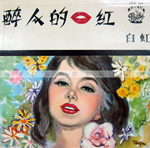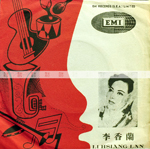In 1949, a whole group of multi-talented stars moved from Shanghai to Hong Kong. Mando pop rose to prominence, rivalling the presence of Canto opera music and Canto pop in a short period of time. The young Wong Jum-sum frequented radio stations and recording studios with his harmonica band members, in that process encountered in person many of these Mando pop stars and maestros, including illustrious names like Li Xian-lan, Bai Guang, Yao li and Yao Min. He also regularly collaborated with Filipino musicians who once illuminated the nightclubs of Shanghai.
These stars and musicians created a reservoir of Mando pop songs in the 1950s. The latter formed an inexhaustible treasure trove for radio music program presenters of the time.

Mando pop was not all about nightclubs and bar girls. Part of its roots came from songs that retained a strong folk connection, augmented by a war-stimulated mentality that looked up to the intellectual ardour and artistic seriousness of the art songs tradition.
In 1960 the first Singtao Amateur Singing Contest took place. Among the competing songs of the Mandarin section, many bore the influence of this art song tradition. The winning song The Song about Selling Sweets, a popular tune composed by Liang le-yin, was sung by Cheung Hoi-wan, who was steeped in classical music training.













































